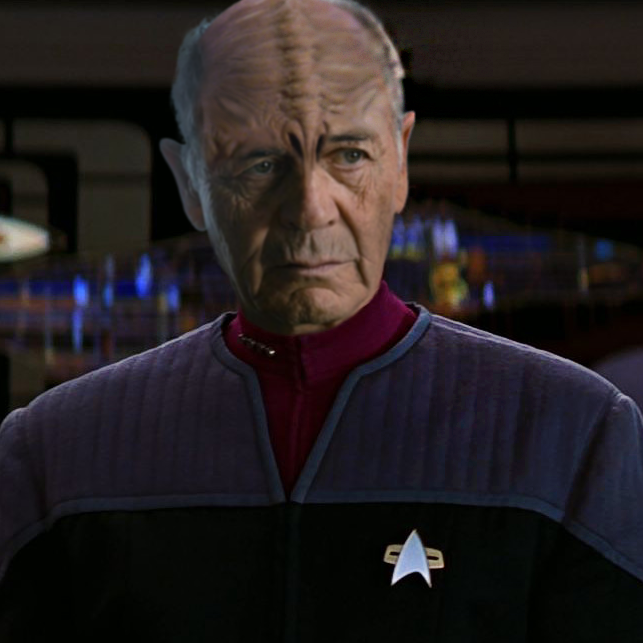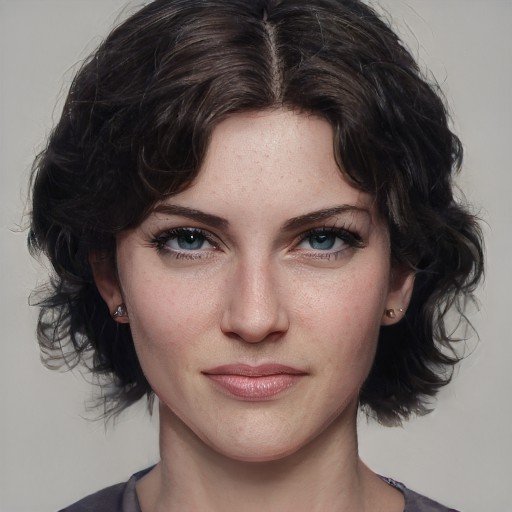When the office smelled softly of her favorite lavender incense, Muninn extinguished the bright hot end of the stick and let the room’s ambient air filtration clean away the smoke. Not everyone who walked through her door would be comfortable breathing in particulate-laden air. The smoke quickly cleared away, leaving nothing but the fresh organic scent behind.
It had taken her a few days to really get things in order here, all while juggling her initial list of pre-assigned patients. But she finally felt like she had her finger on the pulse of the tone.
Creating a good atmosphere for therapy required time, and skill, and (in cultures and times of the past) money. Here, it just took a whole month’s allotment of personal replicator credits. Every one of which was a worthwhile expenditure to Muninn’s mind.
This office would be the way that her clients got to know her from the outset. It needed to reflect the best of her, but it also needed to provide a boundary of safety for those who entered.
“Computer, lower the neutral lighting setting for the room by five percent.”
The chime sounded, and the lights lowered. Muninn smiled. Yes, that felt better. With the subtle difference in lighting, everything looked so much softer, and this way, the small mood lights placed throughout the office would stand out better.
There were three of them: a green-canopied lamp in an old-fashioned style, its base and neck gold and curving. This one sat on her roll-top desk, which occupied the center of the wall directly on the left as you entered the room.
Another lamp sat in the far right-hand corner, past the paisley and leather couch. Simple, its white shade blending it with the wall behind, it cast a soft warm glow.
The third and final light-source, not generated by the room’s ambient system, was a bit of a cheat. On the far-right wall, as you entered, she had constructed an elaborate facade of French doors looking out onto a woodland glade. Carefully-modeled artificial sunlight could either be allowed to stream in, or could be hidden away behind thick velvet curtains. Her own initial experience with life on the station suggested that the duranium bubble could quickly become oppressive, and not everyone felt awe when looking out upon the vacuum’s star field. She wanted people who came into her space to feel safe, to experience an altered sense of place and being while they sat and talked with her.
She felt quite proud of the hologram behind the doors, cleverly designed to add depth and fool the eye of almost any standard Federation species across a wide visible spectrum. It was, she fancied, some of her best work.
Muninn glanced at the antique wristwatch she always wore while on duty (there were also three different clocks placed along various sight-lines in the space, to help both Muninn and her clients maintain a sense of how long their session would last). “Time,” she said aloud, and took a steadying breath.
She had weathered her first round of ‘regulars’ well enough. Those were all Starfleet officers with various social and stress issues they needed to work on. The proverbial meat and potatoes of her day-to-day career.
But, with the influx of refugees, Starfleet wanted to provide counseling services to anyone who needed it. Muninn supposed that, since most of the people fleeing the collapse of the Romulan Empire were, in fact, Romulans, that she would soon be meeting her very first Romulan. And launching directly into offering to support their mental health.
Somehow, she did not feel prepared for that, no matter how much studying she did. Sure, modern psychology looked for the commonalities between species, but there were also always thousands of little cues and hidden subtexts that were unique to an individual or a family, let alone another culture, another species.“You just need to listen,” she reminded herself and took another breath.
A moment later, there was a dull chime that sounded more brassy and metallic than the standard (and therefore less startling). Straightening her uniform jacket, Muninn answered in her husky mezzo voice:
“Come in, please, it’s open.”
Dark hair, bowl-cut, over sharply pointed ears. A severe brow, more pronounced than a human or even Vulcan’s. Deep brown eyes in a surprisingly delicate oval face. An overall impression of youth, anxiety, and… grief? Fear? Muninn tried to gauge the age of the young woman standing there. A teenager, surely, even if Romulans did live longer than ordinary humans. On the younger side, at that. And, a teenager without a guardian present, if Muninn’s subtle glance past the girl’s shoulder’s into the comfortable waiting room was any indication.
“Counselor Musgrave?” said the girl, her voice sturdy and serious.
“That’s me,” Muninn said with a smile. You can call me Muninn, if you like. Or Counselor. Whatever feels comfortable. Come in, close the door.”The girl did as she was told, and Muninn spotted the hidden glances at the corners of the room, the slight hesitation as she pressed the door control, as if she were checking to make sure the room behind her held no surprises. Well, this is going to be interesting.
Aside from the couch to the right of the door, there was a chaise lounge, another smaller couch, and the dark rolling chair that Muninn herself preferred. The rolling chair was soft dark leather and simple. The couches and chaise featured matching summer-tone paisley cushions, dark leather siding, and a wooden skeleton that showed itself in elegantly carved fronting on the couches arms and feet.
The girl stood where she was and stared around the room as if she were standing on the surface of an alien world.
All the possible seating options were facing a shin-height wooden table of gorgeous antique design, polished on the top and stacked with coasters, two empty ceramic cups, and a wooden box with tissues plumed out the top.
“Would you like something hot to drink?” Muninn asked. The girl’s eyes had lingered on the elegant cups for a longer time. “Or cold, for that matter. I’ve got a nice selection pre-programmed.”
Still, the girl did not move, though she did eye the replicator, cleverly ensconced inside a faux-cabinet next to Muninn’s roll-top desk. She carried herself like someone ready to run at any moment, and an increasing urgency filtered through Muninn’s mind. I’ve got this all wrong, she thought. A moment of clarity seemed to come to her, a mix of instinct and her intensive studying the last few days. She called up her memory of the PADD screen as it had been the night before, the still-unfamiliar language displayed there.
A resolve filled her, a feeling that she must not let this girl down.
“Shaoi ben, heieu. Jolan’tru.”
The Rihan language felt a little stiff on Muninn’s tongue, but the bright shock in the girl’s eyes seemed proof that her bet had come through.
“Shaoi kon,” the girl said, so fast that it had to be hammered-in protocol. More proof that Muninn had gotten things right. Then, as if shaking herself out of a haze, the girl blinked and said, “Daie, irho descaey.”
“Alright,” Muninn smiled and picked up the two mugs, careful to move with calm precision. “What kind?”
The girl watched her walk to the replicator, then said softly, “Chocolate.”
Muninn glanced back, but did not hesitate as she put the mug into the replicator. “Right you are. Computer, hot chocolate please.”
The computer bleeped and a moment later steam flowed up from the fresh contents of the mug. “These new replicators are a wonder,” Muninn said. “Here.” She held out the steaming mug, its contents making the air thick with the woody smell of cacao.
The girl hesitated a moment, then stepped forward and grabbed the mug in both hands.
“Go on, Muninn said, “Find yourself any seat you like.”
She kept her back turned as she placed her own mug, programmed chamomile tea, and let the computer do its work. When she turned back, she suppressed a laugh.
The Romulan girl was sitting in Muninn’s swivel chair, her elbows on the arm rests, the mug held in both hands before her like a priceless artifact.
“Well,” Muninn said, “you caught me by surprise. About the last thing in the galaxy I expected you to ask for was hot chocolate.”
“You speak Rihan,” the girl said. Her voice had softened a little, but still kept its formality. She seemed to have accepted that this was a safe place, but perhaps not for long. She did carry herself like someone used to running.
“I do,” Muninn said. She’d started teaching herself a few days earlier, when she realized just how many refugees would be coming aboard, and how many of those were Romulan. “Not much yet, but I’m a quick study. Do you feel comfortable with English? I can ask the computer to turn on the Translator…”
“No,” the girl said. “It’s okay. I know English.” She sipped her chocolate as if there could not possibly be anything more to say on the subject.
“Good?” Muninn asked. She took a seat on the long couch opposite the chair, where she usually seated her clients. She found herself pleased to see that the room looked good from this angle, with someone in the chair.
“Yes. Nnearh, khnai’ru rhissiuy.”
“You’re welcome.”
“What are you…” the girl nodded in Muninn’s direction, her dark brown eyes locked on her mug.
“…Drinking? Chamomile tea. It’s this plant native to Earth, where I’m from. Specifically, this is Matricaria chamomilla, or German chamomile.” She let herself ramble a little, talking for the sake of talking, to give the girl space to breathe. “It’s relaxing, and there is a range of evidence for its use as a gentle medicinal remedy. Stomach cramps, inflammation, anxiety… it’s a hearty little plant.”
The girl considered this. “German?”
Muninn smiled. “A country on Earth. I don’t know why it’s called that, though. My guess is that it grew there, so people called it that. But, I do know the meaning of the word chamomile.”
She held the silence, still smiling, and took a slow sip.
The girl said nothing for the longest time, but then, “What is it?”
Inside, Muninn did a little dance. “Earth-apple.”
“That’s a weird name,” the girl said with a wrinkled nose.
“It is, isn’t it?” Muninn hesitated, then said. “Would you like to tell me your name?”
The change was instantaneous. A sort of iron gate fell across the girl’s face, and her eyes were dark.
Muninn said nothing for a long moment, just held the girl’s gaze. “You don’t have to. You never have to do anything in this room that you don’t want to do, or that makes you uncomfortable in any way.” The girl’s face remained unchanged. “Do you see this?” Muninn tapped the collar of her uniform, where her rank pips were pinned. “These, and my uniform, mean that I am a Starfleet officer. I’m also a doctor,” her gaze flicked to the diplomas on the wall behind where the girl was sitting, “the kind that’s there to help people.”
Bingo. The girl’s iron mask cracked a little. “I know about Starfleet,” she said. Was it just imagination, or could Muninn detect the slightest hint of exasperation in those brown eyes? After a moment more of silence and a few contemplative sips of her chocolate, the first breakthrough came.
“Arrhae i-Srathem e’Anderson t’Asenth.” The words were spoken with deep formality, and the girl’s gaze held Muninn’s like a slipping climber grabs hold of their rope. An intense electricity seemed to settle in the air.
Ah, thought Muninn. Well.
“Thank you, Arrhae Asenth. Arhem ssuaj. I understand. My name is Muninn Mabinogion Musgrave.” The rarity of ever saying her middle name, a private reminder of her parent’s shared love of history and myth, struck her now in the face of the girl’s trust. Asenth had not come here by chance, that much Muninn felt certain of. The girl wanted something, needed something, and now Muninn understood why a Romulan teenager had gone to find help from a Starfleet counselor.
“I was assigned a room,” Asenth said. She looked like she wanted to say more, but could not quite fathom the words.
“With other Romulans?”
“Mostly. Others like me.”
Damn any culture that makes orphans feel like lesser beings! Muninn grappled with her temper. The office was no place for that sort of personal thing. Even if she could strangle that Romulan forefathers for their idiocy. “How do you feel about that?
Asenth shrugged. “It’s all girls there. Some of them have friends I don’t like.”
“People can be mean.”
“Yes.” The word came, soft and hard as a blade between the ribs.
Time for a risk. The more direct approach. “Asenth… what would you like from me?”
A shrug. Then, “I missed…” she trailed off.
“Your family?” Muninn hazarded.
“My mom.” And then those brown eyes flashed. An anger that Muninn suspected had been bubbling for far longer than their session surrendered to the moment and burst forth. “She’s dead. She died. My father died. My mother died. My little brother died.” Her slight chest was heaving with pent-up emotion, her sharp brow even narrower with the force of her rage. “It was the Remans,” she said after a moment, though Muninn had not asked. “The Remens came in the middle of the night, and they killed everyone. We were never doing anything to them.”
“Your mother, was she… human?”
“She was in Starfleet.”
Muninn settled back into the couch and nodded, her face calm, her heart constricted with pain she would need to unpack later, on her own time. “I’m so sorry, Asenth. Can you tell me how it hurts?”
Asenth looked away, her face tight. Her eyes were wet around the edges. She pulled up her knees to her chest, held the mug of cooling chocolate in front of her as the chair squeaked. “It’s like I’m being crushed.” The words were barely a whisper. “I saw it all. I saw everything.”
***
The session ran over her allotted limit twice, and when she did finally close the door after Asenth’s departure, Muninn felt wrung out like a rag for washing. She had listened, mostly, after their initial dialog formed an opening. Before Asenth left, she had penciled the girl in as a regular, making a point to explain that future sessions would only be an hour.
But can I hold myself to that professional limit? Muninn stared blankly into space for a long time. She had done everything and nothing right at the same time. Held the space even as she opened her heart. The look in the young Romulan’s eyes had been staggering. And all for what?
Muninn could picture it: subjugated people, breaking free for the first time and attacking their oppressors, attacking anyone who looked like their oppressors. The privileged, sound in the knowledge that such a thing could never happen to them, were taken unawares. A slaughter of innocent and slaveholder alike. Or could any be innocent, in a society that subjugated another sentient species as completely as the Romulans had done to the Remans? Could the people in chains be blamed for murdering their oppressors?
The words of a poem came to her mind, and she spoke them aloud to the empty room as if they were a prayer. “The unscrupulous power that makes of you the hungry, wretched thing you are today…” Life is the same everywhere, she thought. No matter how many light years between Earth I go, it never ceases to amaze. The roots of sentience are bathed in shadow and disease.
Muninn put away the cups in the replicator, used the cleaning function to remove any particulate matter foreign to the original pattern, and then placed them carefully back on the table in the middle of the room. She stood for a moment, looking down at them, hands on hips, thinking. She could not remove from her mind the look in Asenth’s eyes.
Starfleet. Her mother was in Starfleet.
“Computer, search for any Starfleet officer by the name of Anderson, current or retired, living in the Velorum Sector in the last five years. Other key terms: Romulan-Human marriage, Romulan child, Reman uprising, massacre.”
“Searching…” the computer’s voice floated seemingly out of the air. “…local database query non-responsive. Extending search to Starfleet database. Estimated time to completion, three hours.”
“Bloody hell.” Muninn sighed and flopped into her swivel chair, mentally and physically exhausted. “It’s times like these I wish I could drink.”
“I’m sorry,” the computer helpfully chimed back, “could you repeat that command?”

 Bravo Fleet
Bravo Fleet











